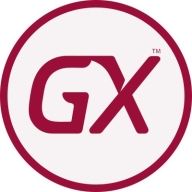

GeneXus and Power Apps are two competitors in the application development platform category, particularly focusing on rapid application development and integration. Power Apps appears to hold the upper hand due to its seamless integration within the Microsoft ecosystem and ease of use for non-developers.
Features: GeneXus excels in rapid application deployment, strong integration with emerging technologies, and supports multiple languages. Its backend capabilities are robust, ideal for business rules and database operations. Power Apps offers extensive customization options and a low-code environment that integrates seamlessly with Microsoft services. The platform is user-friendly, with numerous resources such as tutorials and community support contributing to its flexibility.
Room for Improvement: GeneXus needs to enhance its frontend usability and integration capabilities, as users express concerns about performance, security, and the availability of support resources. Power Apps could benefit from improved documentation and integration capabilities. Users also note pricing challenges and limitations with integrating large datasets or non-Microsoft systems.
Ease of Deployment and Customer Service: GeneXus focuses on on-premises deployments but can expand to cloud environments. While it offers solid technical support, resolution of complex issues can be time-consuming. Power Apps utilizes Microsoft's cloud capabilities for flexible deployment options across various cloud environments. Its customer support is generally responsive, with costs for premium support.
Pricing and ROI: GeneXus's high licensing costs make it less accessible for smaller organizations but beneficial for large enterprises handling complex projects efficiently. Power Apps is cost-effective, especially with integrations within Microsoft 365 subscriptions for internal use, but premium features can increase costs. Both platforms provide good ROI, though Power Apps generally has more attractive pricing for a wider audience.
The connection between Power Apps and Power BI simplifies generating and presenting reports, alleviating the workload and enhancing productivity.
The aim is to create a cleaner interface to replace spreadsheets, thus standardizing processes and improving efficiency.
They are probably adequate for pretty vanilla type of requirements or support tickets, but when it actually comes to something in-depth, I would not rate them more than six or seven, maximum seven.
Community support is closer to an eight or nine since there's a big enough community that someone has likely faced the same problem and posted about it, improving the community overall.
Their assistance was crucial as we developed the solutions.
If it is flexible and includes premium connectors, scalability is easy.
It is quite scalable, though there are some limitations regarding the number of records.
I have not really seen any performance issues, slowness, or response time.
I would rate the stability of Microsoft Power Apps as a nine out of ten.
They do have storage SLA which comes with the license, but they do not have a corresponding SLA for performance.
In many use cases, applications might require importing data exceeding two thousand records, potentially reaching one hundred thousand.
These tools should be intuitive for business users who will need at least a week of training to use them effectively.
For small to medium enterprises, it is affordable, especially with Microsoft Enterprise licensing.
For more elaborate work, an upgrade to an enterprise license, costing around $35 per license, is needed.
It is in the middle range and considered reasonable given the current price.
It integrates seamlessly with Power Automate for process automation and connects with email, SharePoint, Power BI, and MS Teams, facilitating everyday processes.
I run a couple of SQL Servers, which are premium connectors in Microsoft Power Apps, and that requires a different licensing model than what a standard E5 license covers.
Canvas Apps provide complete user design flexibility with many connectors to integrate into Microsoft Power Apps, making it efficient to fetch and update information from various data sources such as Dataverse, Excel, SharePoint, and Azure.
| Product | Market Share (%) |
|---|---|
| Microsoft Power Apps | 9.0% |
| GeneXus | 0.8% |
| Other | 90.2% |

| Company Size | Count |
|---|---|
| Small Business | 12 |
| Large Enterprise | 2 |
| Company Size | Count |
|---|---|
| Small Business | 31 |
| Midsize Enterprise | 17 |
| Large Enterprise | 50 |
What is GeneXus? GeneXus™ is the best Low-Code Platform that you don't know yet.
It's a Software Development Platform that simplifies and automates the tasks of creating and evolving enterprise applications and multi-channel user-experiences. Great Advantages:
- Higher productivity, with automatic maintenance & evolution
- Multi-Experience, we continuously create new code generators
- Agile, incremental approach, with fully functional prototypes
- Easier to learn, one single language to cover all technologies
- Future-proof, we've been around for 30 years, evolving for you
Key Differentiators against the competition:
- No runtime fees, we charge by developer
- Best theoretical framework, which allows us to evolve
- Best coverage in the market: Most technologies, most languages, most markets and industries
- We run on-premise or on the cloud
- Multiple starting points depending on the type of company you work in, with products for Students, Startups, ISVs, Corporate Development, and SAP technologies
GeneXus uses Artificial Intelligence techniques to create software, enabling truly incremental development of apps, providing a low-code, future-proof development platform for the leading execution platforms and languages, and the most popular DBMS.
Microsoft Power Apps is a rapid application development software and low-code development platform. The solution consists of a suite of apps, services, connectors, and a data platform. It provides an environment for building custom apps which is suitable for different businesses.
Microsoft Power Apps allows users to not only build applications, but also connect them to Microsoft's other sources, including the underlying data platform Microsoft Dataverse, as well as online and on-premise sources such as SharePoint, Dynamics 365, and Microsoft 365. The applications built using Microsoft Power Apps have a responsive design that makes them suitable for work in browsers and on mobile applications on different devices.
The no-code side of the product makes it suitable for complete beginners to app building, allowing them to easily create fully functional applications with many features. The solution also has a specialized platform for developers where specialists can access data and metadata, create custom connectors, integrate with external data, and apply business logic. The solution allows users to create three types of apps: canvas, model-driven, and portal. They are made using:
Microsoft Power Apps Features
The three different design tools of the solution, Power Apps Studio, App Designer, and Power Apps Portals Studio, come with various features which allow users to utilize the tools. Some of these features include:
Microsoft Power Apps Benefits
The product brings various benefits to organizations and individuals who utilize it. Some of the biggest advantages of Microsoft Power Apps include:
Reviews from Real Users
An IT Specialist (INFOSEC) at a government appreciates this tool because it is low-code, low learning curve, and reduces manpower.
Rafael T., a data engineer at NTT Security, likes Microsoft Power Apps, because it is great for making apps quickly, has helpful support, and integrates with Power BI.
We monitor all Low-Code Development Platforms reviews to prevent fraudulent reviews and keep review quality high. We do not post reviews by company employees or direct competitors. We validate each review for authenticity via cross-reference with LinkedIn, and personal follow-up with the reviewer when necessary.